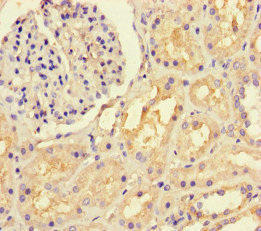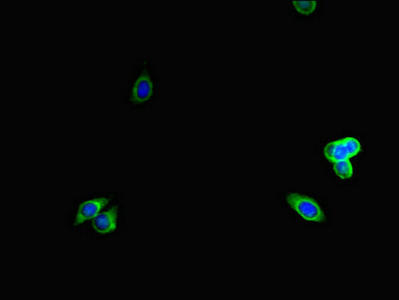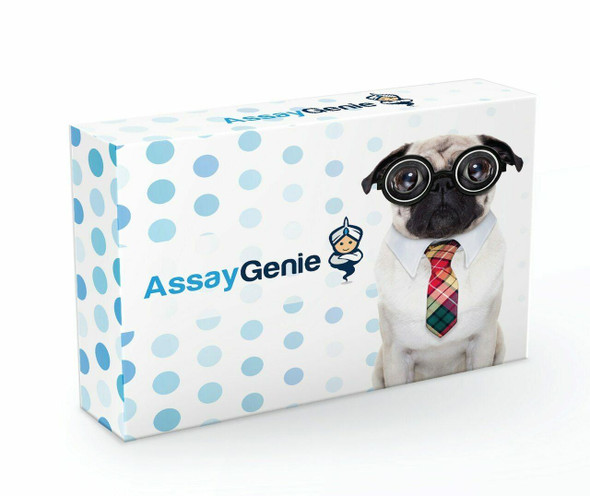| UniProt Protein Function: | LTBP4: May be involved in the assembly, secretion and targeting of TGFB1 to sites at which it is stored and/or activated. May play critical roles in controlling and directing the activity of TGFB1. May have a structural role in the extra cellular matrix (ECM). Defects in LTBP4 are the cause of Urban-Rifkin-Davis syndrome (URDS); also known as Cutis laxa with severe pulmonary gastrointestinal and urinary abnormalities. URDS is a syndrome characterized by disrupted pulmonary, gastrointestinal, urinary, musculoskeletal, craniofacial and dermal development. Clinical features include cutis laxa, mild cardiovascular lesions, respiratory distress with cystic and atelectatic changes in the lungs, and diverticulosis, tortuosity and stenosis at various levels of the intestinal tract. Craniofacial features include microretrognathia, flat midface, receding forehead and wide fontanelles. Belongs to the LTBP family. 4 isoforms of the human protein are produced by alternative splicing.Protein type: Extracellular matrix; Secreted; Secreted, signal peptideChromosomal Location of Human Ortholog: 19q13.1-q13.2Cellular Component: extracellular matrix; extracellular region; extracellular space; proteinaceous extracellular matrixMolecular Function: protein binding; transforming growth factor beta bindingBiological Process: growth hormone secretion; multicellular organismal development; protein folding; regulation of cell differentiation; regulation of cell growth; regulation of proteolysis; regulation of transforming growth factor beta receptor signaling pathwayDisease: Cutis Laxa, Autosomal Recessive, Type Ic |
| UniProt Protein Details: | |
| NCBI Summary: | The protein encoded by this gene binds transforming growth factor beta (TGFB) as it is secreted and targeted to the extracellular matrix. TGFB is biologically latent after secretion and insertion into the extracellular matrix, and sheds TGFB and other proteins upon activation. Defects in this gene may be a cause of cutis laxa and severe pulmonary, gastrointestinal, and urinary abnormalities. Three transcript variants encoding different isoforms have been found for this gene.[provided by RefSeq, May 2010] |
| UniProt Code: | Q8N2S1 |
| NCBI GenInfo Identifier: | 110347431 |
| NCBI Gene ID: | 8425 |
| NCBI Accession: | NP_001036009.1 |
| UniProt Secondary Accession: | Q8N2S1,O00508, O75412, O75413 |
| UniProt Related Accession: | Q8N2S1 |
| Molecular Weight: | |
| NCBI Full Name: | latent-transforming growth factor beta-binding protein 4 isoform a |
| NCBI Synonym Full Names: | latent transforming growth factor beta binding protein 4 |
| NCBI Official Symbol: | LTBP4 |
| NCBI Official Synonym Symbols: | ARCL1C; LTBP-4; LTBP4L; LTBP4S |
| NCBI Protein Information: | latent-transforming growth factor beta-binding protein 4 |
| UniProt Protein Name: | Latent-transforming growth factor beta-binding protein 4 |
| UniProt Synonym Protein Names: | |
| Protein Family: | Latent-transforming growth factor beta-binding protein |
| UniProt Gene Name: | LTBP4 |
| UniProt Entry Name: | LTBP4_HUMAN |








